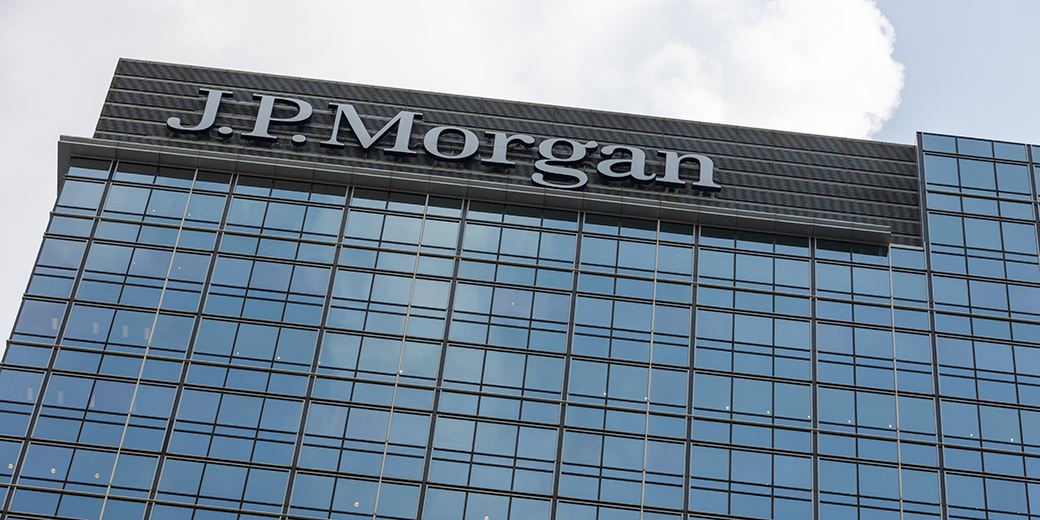
J.P. Morgan Chase Acquires First Republic Bank Assets, Strengthening US Banking Sector Amid Recent Failures
Financial Giant Steps Up to Contain Contagion, Bolstering Confidence and Resilience in US Banking Industry
J.P. Morgan Chase has acquired the majority of First Republic Bank's assets in the wake of the bank's collapse due to significant deposit withdrawals and concerns over paper losses in its mortgage division. This acquisition, overseen by US regulators, marks the third major US banking institution failure in the past two months, raising concerns of a potential banking crisis similar to the 2008 global financial crisis.
First Republic Bank, based in San Francisco, experienced more than $100 billion in outflows during the first quarter of 2023 and subsequently explored its options. J.P. Morgan's acquisition of First Republic's assets provides much-needed stability to the US banking sector, helping contain the potential spread of economic setbacks caused by customers withdrawing deposits from lenders perceived as weak.
As part of the acquisition, J.P. Morgan will take on $173 billion of loans, $30 billion of securities, and $92 billion of deposits from the failed lender. Furthermore, all 84 branches of the bank will reopen as J.P. Morgan Chase branches, and former deposit holders at First Republic will become account holders at J.P. Morgan.
Although the exact amount J.P. Morgan paid for the acquisition remains undisclosed, the Federal Deposit Insurance Corporation (FDIC) confirmed that it is providing $50 billion in financing as part of the deal. The FDIC also agreed to share any losses on residential mortgages and commercial loans. This move by J.P. Morgan demonstrates the bank's financial strength, capabilities, and business model, allowing it to minimize costs to the Deposit Insurance Fund.
First Republic Bank's collapse follows the closure of Silicon Valley Bank and Signature Bank earlier this year. These events have prompted concerns about contagion and forced the Federal Reserve to launch emergency measures aimed at stabilizing the markets. In March, a group of 11 Wall Street banks, including J.P. Morgan, injected $30 billion into First Republic in an attempt to prevent its failure, but these efforts proved insufficient.
J.P. Morgan's acquisition of First Republic's assets comes as part of its ongoing growth strategy, having acquired over 30 companies in deals worth more than $5 billion combined since 2021. The bank's CEO, Jamie Dimon, highlighted that the acquisition modestly benefits J.P. Morgan overall, contributes to its wealth strategy, and complements its existing franchise.
The acquisition brings relief to the US banking sector, as it helps contain the potential spread of economic setbacks triggered by customers withdrawing deposits from lenders perceived as weak. J.P. Morgan anticipates a one-time, post-tax gain of approximately $2.6 billion following the acquisition, not reflecting an estimated $2 billion in post-tax restructuring costs likely over the next 18 months.
Despite the collapse of First Republic Bank and the concerns it raised, Wells Fargo analysts noted that deposit concerns are isolated to a handful of banks and that the challenges faced by First Republic and Silicon Valley Bank are not indicative of the overall resiliency of mid-sized banks. The analysts emphasized that the banking sector's ability to manage these isolated incidents reflects the industry's robustness in the face of adversity.
As the US banking sector faces continued pressure, J.P. Morgan's acquisition of First Republic Bank's assets serves as a stabilizing force, preventing the situation from escalating further and contributing to the ongoing efforts to maintain market stability. With J.P. Morgan's strong financial position and commitment to supporting the US banking sector, this acquisition is a significant step in addressing the current challenges and restoring confidence in the nation's financial system.
In conclusion, J.P. Morgan Chase's acquisition of the majority of First Republic Bank's assets has provided a much-needed lifeline to the troubled US banking sector. By taking on the failed bank's assets and reopening its branches under the J.P. Morgan Chase brand, the financial giant has effectively contained the potential contagion that could have resulted from the collapse of another banking institution. This move showcases J.P. Morgan's dedication to maintaining the stability of the US banking sector and its ability to leverage its financial strength, capabilities, and business model to manage crises effectively.
The acquisition of First Republic Bank's assets comes at a critical time, as the US banking industry grapples with the effects of recent failures and economic uncertainty. By stepping up and assuming control over First Republic's assets, J.P. Morgan has not only demonstrated its commitment to the health and stability of the financial sector but also its confidence in navigating the challenges presented by the current market conditions.
Looking forward, the successful integration of First Republic Bank's assets into J.P. Morgan's operations is expected to contribute positively to the bank's growth, wealth strategy, and overall resilience. The acquisition will also serve to instill greater confidence among customers, investors, and regulators in the US banking sector's ability to weather future challenges and maintain stability in the face of adversity.
While the acquisition of First Republic Bank's assets by J.P. Morgan Chase is a positive development for the US banking sector, it also serves as a reminder of the importance of vigilant oversight and prudent risk management by both banks and regulators. The banking industry must continue to prioritize the identification and mitigation of potential risks and vulnerabilities, ensuring that institutions are well-capitalized and prepared to withstand potential shocks to the financial system.
In addition, the ongoing collaboration between banks, regulators, and other stakeholders will be crucial in maintaining stability and preventing future crises. As the US banking sector continues to evolve and adapt to changing market conditions, the lessons learned from the recent bank failures will undoubtedly inform future risk management strategies and regulatory frameworks, contributing to the long-term health and resilience of the financial system.
Ultimately, J.P. Morgan Chase's acquisition of First Republic Bank's assets marks a significant milestone in the ongoing efforts to maintain stability within the US banking sector. By taking decisive action and leveraging its financial strength, J.P. Morgan has played a critical role in containing the potential contagion from the recent bank failures and restoring confidence in the industry. As the banking sector continues to navigate the challenges ahead, the successful integration of First Republic Bank's assets into J.P. Morgan's operations will serve as a testament to the resilience and adaptability of the US financial system.
Read More
-
GPIQ ETF Price Forecast: Can a 10% Yield at $52 Survive the Next Nasdaq Selloff?
09.02.2026 · TradingNEWS ArchiveStocks
-
XRP ETF Price Forecast: XRPI at $8.32, XRPR at $11.86 as $44.95M Inflows Defy BTC and ETH Outflows
09.02.2026 · TradingNEWS ArchiveCrypto
-
Natural Gas Futures Price Forecast: Will The $3.00 Floor Hold After The $7 Winter Spike?
09.02.2026 · TradingNEWS ArchiveCommodities
-
Stock Market Today: Dow Back Under 50K While S&P 500 and Nasdaq Push Higher as Gold Reclaims $5,000
09.02.2026 · TradingNEWS ArchiveMarkets
-
USD/JPY Price Forecast: Can Bulls Clear 157.5 Without Triggering a 160 Intervention Line?
09.02.2026 · TradingNEWS ArchiveForex


















